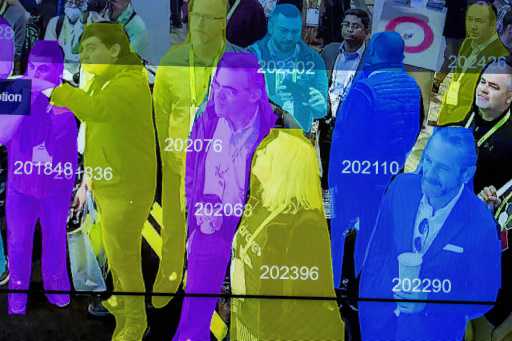Facial recognition: IT and police on delicate dance

Image collected
Tech giants want to portray themselves as forces once and for all and as america was first gripped by anti-racism protests many of them publicly disavowed advertising controversial facial acknowledgement technology to law enforcement forces.
Facial recognition has numerous applications that could simplify our lives as we've seen with Apple using it to unlock smartphones or in stores to replace cash registers.
But the technology includes a dark part, with facial recognition integrated into China's massive general public surveillance system and its social credit experiment where even minor infractions of open public norms can lead to sanctions.
As the protests spread across the USA about law enforcement violence and racism, pressure mounted on tech businesses about the technology. Microsoft and Amazon declared they would suspend revenue of facial recognition computer software to law enforcement forces while IBM said it could exit the business.
Privacy and rights organizations worry about the implications of the utilization of facial recognition technology for legal reasons enforcement.
"It is an exceptionally intrusive sort of surveillance and will seriously undermine our freedoms and eventually our society as a whole," says Privacy International.
"The largest danger is that this technology will be used for general, suspicionless surveillance systems," says because of its portion the American Civil Liberties Union (ACLU).
It notes that US talk about governments hold intensive photo databases within their automobile departments, which if coupled with public surveillance or various other cameras, could cause "a comprehensive system of identification and monitoring".
In January 2020, a fresh York Circumstances investigation pulled back the curtain on the activities of Californian startup Clearview AI, whose facial recognition tool "could end your capability to walk down the street anonymously".
That's because Clearview AI doesn't use photographs held by governments, but vast amounts of photographs scraped from social mass media sites.
While social media sites like Twitter, Facebook, YouTube (Google) and LinkedIn (Microsoft) protested against the unsanctioned usage of their users' photos, Clearview hasn't acceded to their requirements to delete them.
The firm, which received funding from PayPal co-founder Peter Thiel, says it has recently signed up 600 police agencies worldwide.
Regarding to advocacy group AlgorithmWatch, in least 10 European police forces already use facial reputation technology and haven't needed to transform to the tech giants.
"I have never seen a deal between Microsoft, Amazon or IBM and a police force in the investigations I've done about them," said journalist Nicolas Kayser-Bril, who did the study behind the AlgorithmWatch record.
"Tools for conducting face recognition are accessible," he added, noting that BriefCam, a good subsidiary of Japanese multinational Canon which specialises found in ultra-rapid evaluation of images, is probably the leaders in the European market.
China has begun to export its face reputation technology, particularly via its telecoms devices giant Huawei.
A company executive told a business forum in Morocco this past year that using its technology not merely the identity of a person can be identified, but educational and function experience, personal preferences and new travel.
In February, The Intercept cited a report that 10 European police forces are thinking about a joint network for facial recognition searches by extending agreements in place that allow sharing of biometric information like DNA and fingerprints.
France's interior ministry is normally expected to unveil before long proposals to widen the utilization of the technology, with officials keen in order to use in certain cases such as terrorist attacks and kid kidnappings.
Source: https://japantoday.com
Tags :
Previous Story
- Discussion on US-Bangladesh trade, commercial corridor held
- With a 6% growth forecast, Bangladesh is set...
- With a 6% growth forecast, Bangladesh is defined...
- Bangla PPE export to US a 'significant milestone':...
- 'Stop suppression of Huawei', China says US actions...
- Government starts foreign engagements to avert downturn
- RMG Products: Bangladesh seeks 2-year duty-free industry access...
- Asian supply chain hit by COVID, Intel considers...